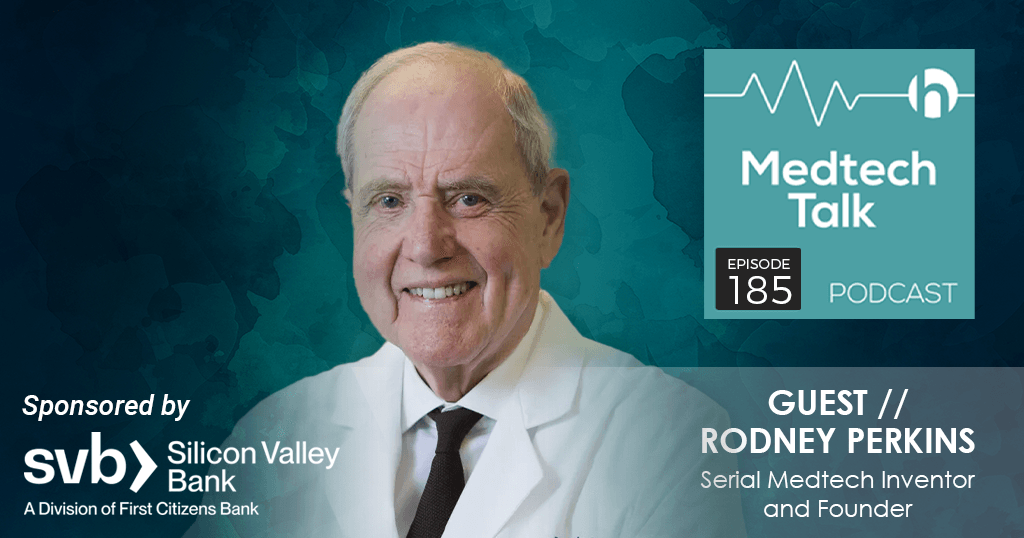Too often we define the Medtech sector by the number of dollars raised, IPOs helped or companies sold. But the focus neglects the very foundation of the sector: the people. Join the Medtech Talk Podcast each month to hear from entrepreneurs, investors and executives who spend their days developing the tools that make sick people well and health care more efficient.

In this month’s episode of Medtech Talk, host Geoff Pardo speaks with Rodney Perkins, M.D., serial medtech inventor and founder of several companies, including Collagen Corporation and Laserscope. Perkins delves into his extensive history as one of the industry’s most prolific and successful entrepreneurs whose inventions have helped shape many medical specialties. Perkins discusses what drew him to medicine and medtech, how to navigate the challenges of starting new companies, and why being aware of your own skillset is important to the growth of a company. He also offers advice on how to handle the stresses of entrepreneurship, including his own “entrepreneur’s survival kit” of self-care and understanding your limits.
Dr. Perkins is an internationally known otologic surgeon who has founded and developed multiple successful medical device companies. He is the founder of the California Ear Institute at Stanford and Emeritus Clinical Professor of Surgery at Stanford. Dr. Perkins has created a number of surgical procedures and techniques that are practiced by ear surgeons throughout the world.
He is the founder or co-founder of 15 medical technology companies. Six of these companies became public companies: Collagen Corporation, Laserscope, Resoud, Pulmonx, Procept and Minerva. Two of these, Pulmonx and Procept, were ‘Unicorns’ (valuations in excess of $1 Billion). Many other companies were acquired by global health care enterprises.
Dr. Perkins received his undergraduate degree from Indiana University. He is a graduate of the Indiana University School of Medicine where he won the American Medical Association National Research Award for medical students and served a clerkship at the Radcliffe Infirmary at Oxford. While a surgical resident at Stanford University School of Medicine he was awarded a training grant from the National Institutes of Health.
He received the Phoenix Hall of Fame Innovators Award and received Lifetime Achievement Awards from Medical Futures, a British organization that fosters innovation in medicine and from the Weingarten Children’s Center in California. Dr. Perkins received the Distinguished Medical Alumnus Award from Indiana University. He served on the BioX Advisory Board at Stanford University and holds 118 patents.